That is the opinion of Prof. Dr. Le Anh Vinh, Director of the Vietnam Institute of Educational Sciences (VNIES) at the National Conference 2025 with the theme "Innovation in language education in Vietnam: Sustainability, internationalization and digital transformation", organized by the School of Economics, Law and State Management under the University of Economics Ho Chi Minh City in collaboration with the Vietnam Institute of Educational Sciences ( Ministry of Education and Training ) on October 4, in Ho Chi Minh City.
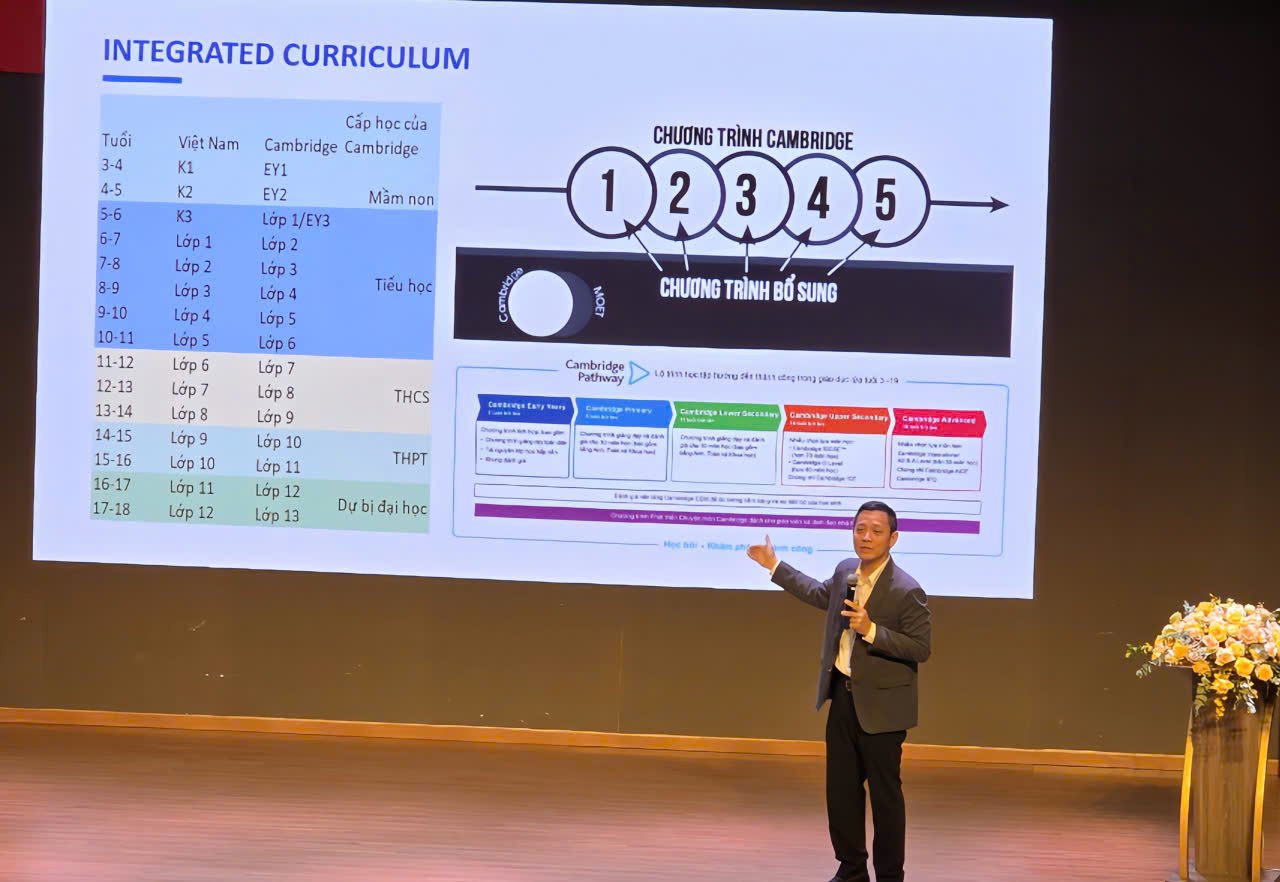
According to Prof. Dr. Le Anh Vinh, integrating subject knowledge with English teaching can create a roadmap to make English a second language in Vietnam, instead of just a foreign language. This model opens up many opportunities, students are relieved by avoiding duplication of knowledge, while developing both global capacity and national identity; schools enhance their reputation through granting dual degrees from the Ministry of Education and Training and international certificates; teachers and managers are enhanced with professional capacity; international partners have conditions to expand sustainable cooperation in Vietnam.
However, the implementation of the integrated program also faces many challenges. Notably, the facilities at many schools do not meet the requirements, there are difficulties in assessment and evaluation, teachers lack teaching materials, while students' English proficiency is limited.
Prof. Dr. Le Anh Vinh emphasized that the integrated program is not only a management requirement but also a strategic key for the sustainable development of international education in Vietnam. To effectively implement it, there needs to be a concerted effort from program design, teacher training, reform of the assessment system to strengthening administrative support. This process requires close coordination between schools, teachers, students and international organizations such as Cambridge, to build a program that is both globally competitive and suitable for the Vietnamese context.
According to Associate Professor Dr. Jonathan Newton, Victoria University of Wellington (New Zealand), to realize the policy of making English the second language in Vietnam, English must not only be considered as a subject but also used as a language of instruction in many subjects, combined with appropriate methods. The teaching models that need to be applied include: content and language integrated learning (CLIL), subject-centered learning (CBI), teaching English for specific purposes (ESP) and teaching some subjects entirely in English (EMI). He believes that these models are even more meaningful in the context of global education entering a period of strong transformation under the impact of artificial intelligence.
The 2025 National Conference gathered nearly 150 delegates, including 2 plenary sessions, 2 guest speaker sessions and more than 50 parallel presentations. The key topics discussed included: Sustainable language education in a global context; internationalization and teaching in English (English-Medium Instruction – EMI); digital transformation in language teaching and assessment; language policy and educational leadership; career-oriented language education and business connections.
Source: https://baotintuc.vn/ban-tron-giao-duc/giai-phap-chien-luoc-dua-tieng-anh-thanh-ngon-ngu-thu-2-tai-viet-nam-20251004170046750.htm



![[Photo] Solemn opening of the 8th Congress of the Central Public Security Party Committee, term 2025-2030](https://vphoto.vietnam.vn/thumb/1200x675/vietnam/resource/IMAGE/2025/10/4/f3b00fb779f44979809441a4dac5c7df)
![[Photo] Bustling Mid-Autumn Festival at the Museum of Ethnology](https://vphoto.vietnam.vn/thumb/1200x675/vietnam/resource/IMAGE/2025/10/4/da8d5927734d4ca58e3eced14bc435a3)
![[Photo] General Secretary To Lam attends the 8th Congress of the Central Public Security Party Committee](https://vphoto.vietnam.vn/thumb/1200x675/vietnam/resource/IMAGE/2025/10/4/79fadf490f674dc483794f2d955f6045)


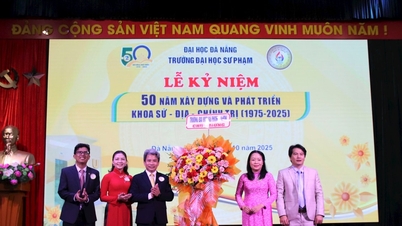



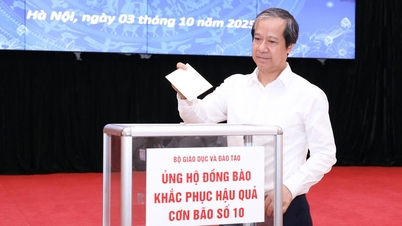

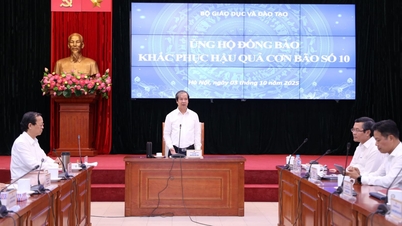


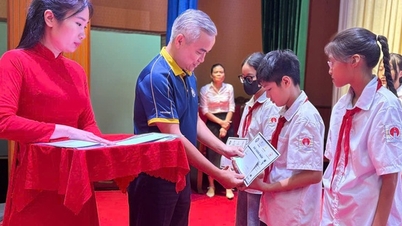

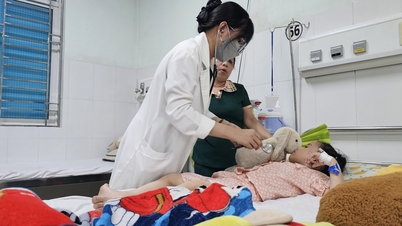












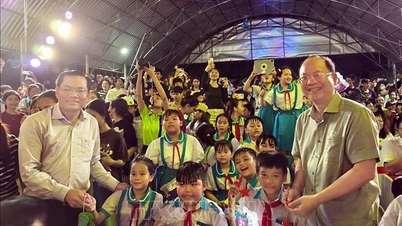




























![[VIDEO] Summary of Petrovietnam's 50th Anniversary Ceremony](https://vphoto.vietnam.vn/thumb/402x226/vietnam/resource/IMAGE/2025/10/4/abe133bdb8114793a16d4fe3e5bd0f12)

![[VIDEO] GENERAL SECRETARY TO LAM AWARDS PETROVIETNAM 8 GOLDEN WORDS: "PIONEER - EXCELLENT - SUSTAINABLE - GLOBAL"](https://vphoto.vietnam.vn/thumb/402x226/vietnam/resource/IMAGE/2025/7/23/c2fdb48863e846cfa9fb8e6ea9cf44e7)




















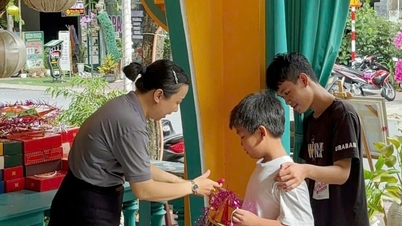
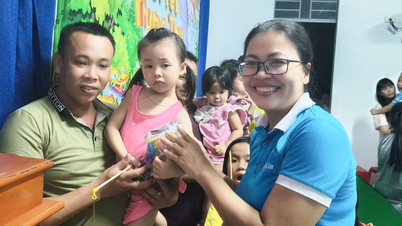

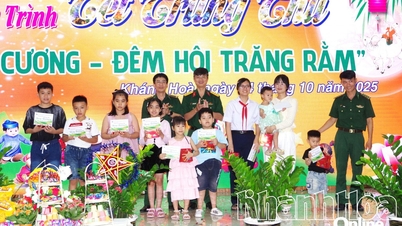








Comment (0)